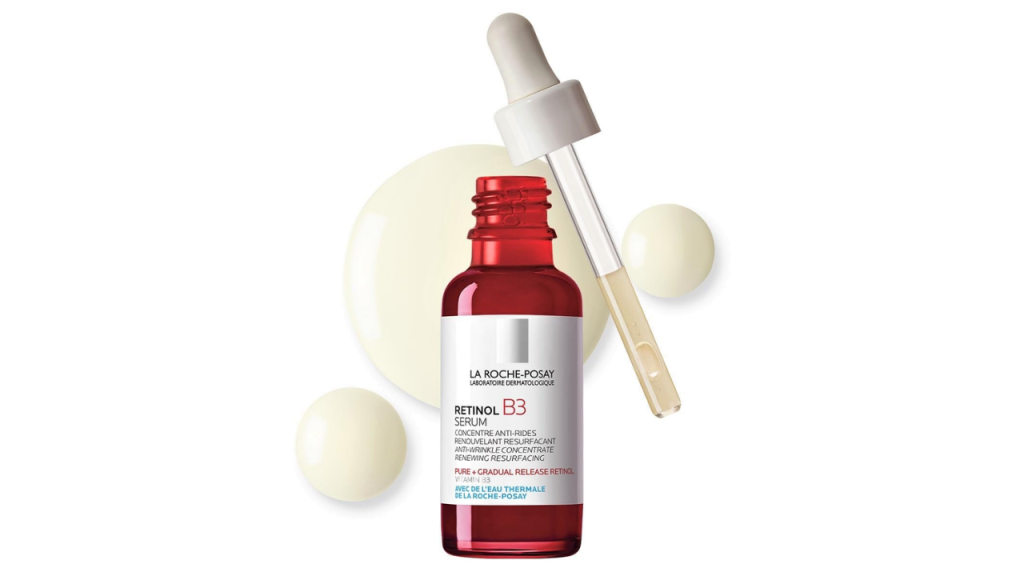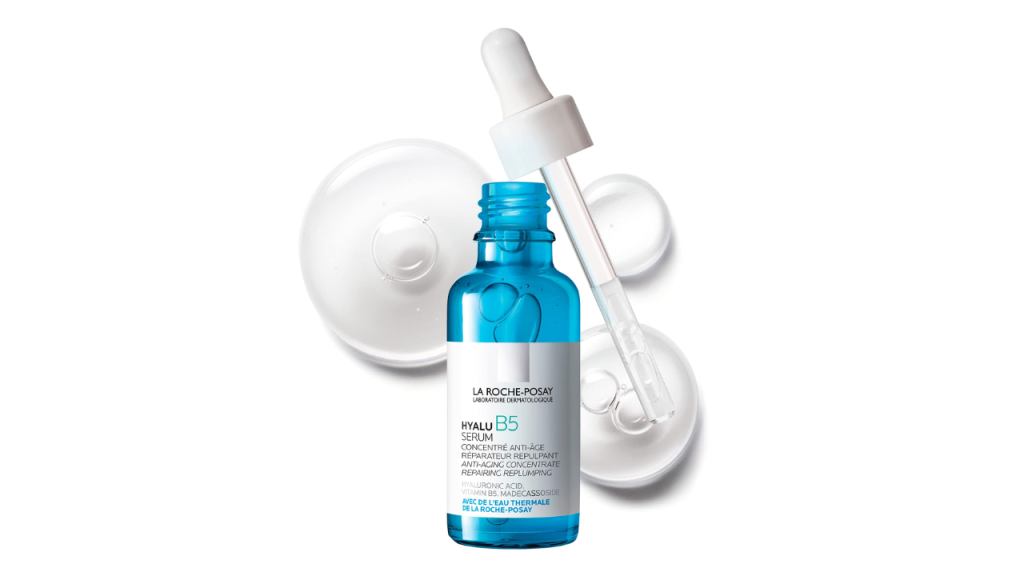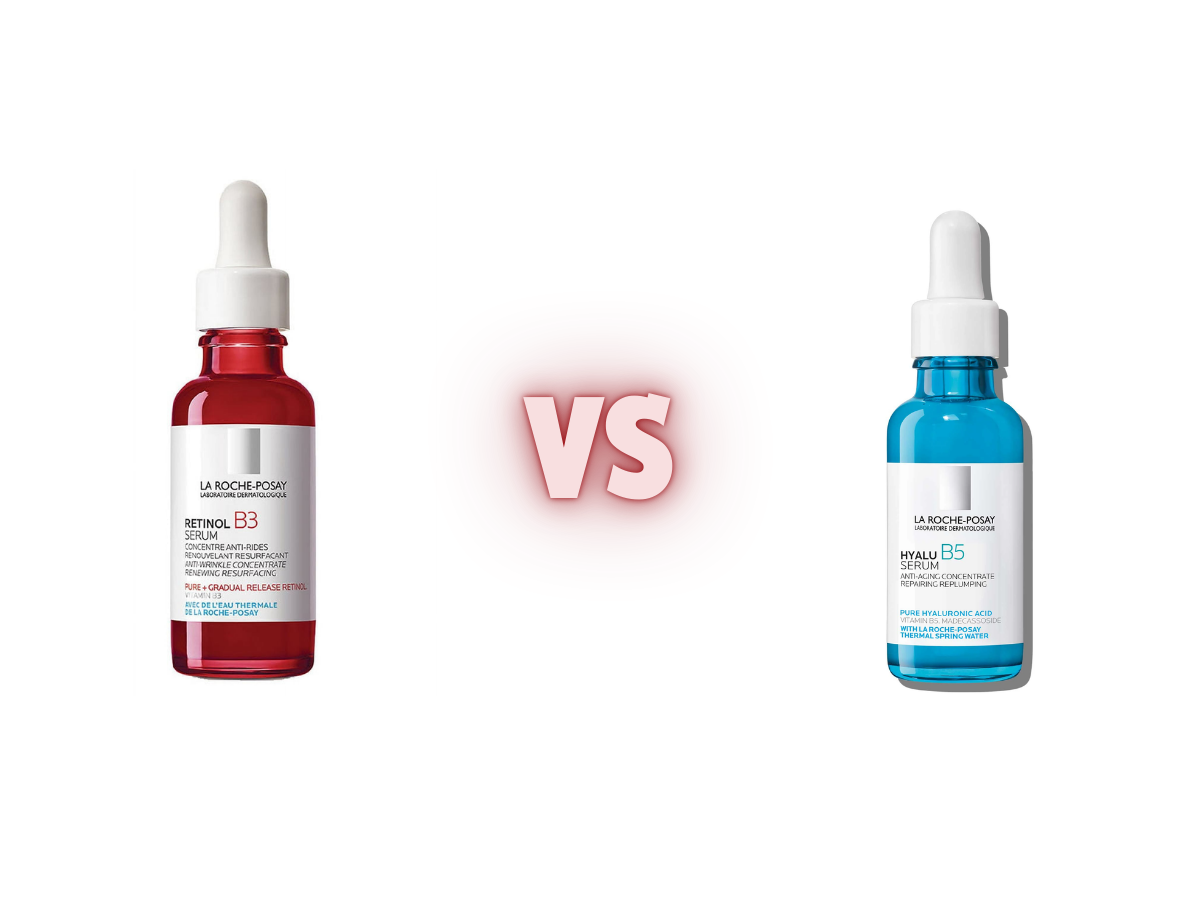If you’re on the hunt for a serum that can improve both the look and health of your skin, you’ve likely encountered two standout products from La Roche-Posay: the Retinol B3 Serum and the Hyalu B5 Serum. Both promise anti-aging, brightening, and hydrating benefits, yet they differ significantly in ingredients, formulation, and how they work on the skin.
So, what exactly sets them apart? And which one is the better fit for your unique skin concerns?
In this guide, we’ll break down everything you need to know about these two La Roche-Posay serums—covering their ingredients, texture, usage, pricing, and more—to help you make an informed decision tailored to your skincare goals.
What We’ll Cover:
- Overview of La Roche-Posay Retinol B3 and Hyalu B5 Serums
- Key Ingredient Comparison
- Texture and Sensory Experience
- Ideal Usage and Application
- Price Breakdown
- Final Verdict: Which One Should You Choose?
About La Roche-Posay Retinol B3 and Hyalu B5 Serums
La Roche-Posay is a dermatologist-recommended skincare brand originally founded in France in 1975. Known for formulating gentle yet effective products with its signature Thermal Spring Water, the brand focuses on creating solutions for sensitive skin of all types.
La Roche-Posay Retinol B3 Serum
This anti-aging serum is formulated to visibly reduce the appearance of fine lines, wrinkles, and sun damage. With pure retinol and vitamin B3 (niacinamide) at its core, it encourages skin renewal while being suitable even for sensitive skin. The result is a smoother, more radiant complexion.

La Roche-Posay Hyalu B5 Serum
The Hyalu B5 Serum is designed to intensely hydrate, plump, and repair the skin’s moisture barrier. Enriched with pure hyaluronic acid and vitamin B5, it’s especially effective for dry, dehydrated skin or those dealing with early signs of aging like loss of volume and fine lines.

Although both target skin aging, their approaches are distinct: Retinol B3 promotes cell turnover and regeneration, while Hyalu B5 focuses on hydration and barrier repair.
Ingredient Breakdown
La Roche-Posay Retinol B3 Serum
Key ingredients include:
- Pure Retinol – A vitamin A derivative known for increasing cell turnover and minimizing fine lines and wrinkles.
- Niacinamide (Vitamin B3) – Helps restore the skin barrier, even out skin tone, and soothe irritation.
- Hyaluronic Acid – Binds water to the skin, keeping it hydrated and supple.
- Glycerin – A humectant that attracts moisture from the environment.
- Dimethicone – Seals in moisture and smooths the skin’s surface.
- La Roche-Posay Thermal Spring Water – A mineral-rich antioxidant water that soothes sensitive skin.
La Roche-Posay Hyalu B5 Serum
Key ingredients include:
- Concentrated Pure Hyaluronic Acid – Provides long-lasting hydration and helps plump up the skin.
- Vitamin B5 (Panthenol) – Strengthens the skin barrier and enhances hydration.
- Madecassoside – A Centella Asiatica-derived antioxidant that calms and nourishes the skin.
- Glycerin & Dimethicone – Help retain moisture and protect the skin.
- La Roche-Posay Thermal Spring Water – Calms and balances sensitive skin.
Both formulas share several hydrating and skin-soothing ingredients, but their core actives—retinol vs. hyaluronic acid—cater to different concerns.
Texture & Feel
Retinol B3 Serum
- Texture: Lightweight and fluid, absorbs quickly into the skin.
- Finish: Smooth, velvety, and non-greasy with a slightly moisturizing feel.
- Scent: Mildly fragranced, but not overpowering.
Users report that even a small amount spreads well across the face and delivers noticeable smoothness.
Hyalu B5 Serum
- Texture: Rich and slightly gel-like, with a serum-moisturizer hybrid feel.
- Finish: Refreshing and hydrating with a soft, plumped effect after application.
- Scent: Light and pleasant; absorbs cleanly without residue.
It feels cooling on the skin and glides effortlessly, making it ideal for layering under other products.
How to Use Each Serum
Retinol B3 Serum
- When: Use in the evening only.
- How: Apply 3–4 drops to clean, dry skin, avoiding the eye area. Massage gently into the face and neck, then follow with moisturizer.
- Frequency: Start 2–3 times a week to build tolerance, then increase to nightly use as your skin adjusts.
Since retinol can cause irritation in the early stages, always apply sunscreen during the day when using this product. The addition of niacinamide helps soothe and reduce potential redness or dryness.
Hyalu B5 Serum
- When: Suitable for morning and/or night.
- How: Use 3–4 drops on clean skin, avoiding the eye area. Pat gently until absorbed, and follow with a moisturizer.
- Frequency: Can be used daily and layered under other products.
This serum is especially beneficial for those with dry, tight, or dull skin, and is less likely to cause irritation compared to retinol-based products.
Price Comparison
| Product | Size | Approx. Price |
| Retinol B3 Serum | 30 ml | $44.99 |
| Hyalu B5 Serum | 30 ml | $39.99 |
| 50 ml | $53.99 |
While both products are in the mid-range price category, Retinol B3 Serum is slightly more expensive per ml. Hyalu B5 offers a more cost-effective option, especially with the larger 50 ml size available.
Which One Should You Choose?
Choose Retinol B3 Serum if:
- You’re targeting fine lines, wrinkles, sun damage, or uneven texture
- You’re comfortable introducing retinol into your routine
- You want a product that promotes skin renewal and visible resurfacing
Best for: Normal to oily skin, aging skin, or those with discoloration or breakouts.
Choose Hyalu B5 Serum if:
- Your skin feels dry, dehydrated, or sensitive
- You want a serum that plumps and hydrates instantly
- You’re looking for a gentle formula that’s safe for daily use
Best for: Dry, dehydrated, or sensitive skin types; ideal for layering.
Final Thoughts
Both the La Roche-Posay Retinol B3 Serum and the Hyalu B5 Serum are excellent additions to a skincare routine, each offering unique benefits suited to different needs.
- Opt for Retinol B3 if you’re serious about anti-aging, skin renewal, and improving texture and tone.
- Go with Hyalu B5 if your main concern is hydration, elasticity, and barrier repair, especially if your skin is sensitive or reactive.
Ultimately, your choice should be guided by your skin type, current concerns, and comfort level with active ingredients like retinol. Whichever serum you choose, La Roche-Posay’s dermatologist-developed formulas ensure you’re getting high-quality care designed with sensitive skin in mind.
